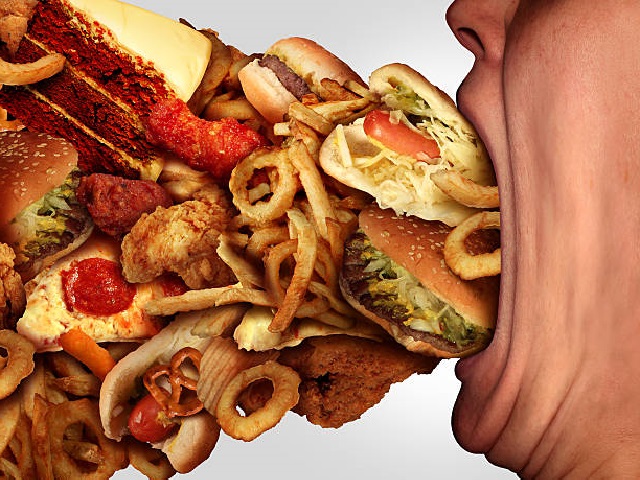6 Signs You May Have Bulimia Nervosa -- Symptoms, Causes, Effects, Treatment and Prevention
Bulimia nervosa is a serious eating disorder characterized by recurrent episodes of binge eating followed by compensatory behaviors to prevent weight gain. Individuals with bulimia nervosa often have a distorted body image and engage in secretive and excessive eating, which is then followed by behaviors such as self-induced vomiting, misuse of laxatives or diuretics, fasting, or excessive exercise.
Symptoms of Bulimia Nervosa
The symptoms of bulimia nervosa may include:
- Recurrent episodes of binge eating: Consuming a large amount of food within a discrete period, often accompanied by a sense of loss of control.
- Compensatory behaviors: Engaging in behaviors such as self-induced vomiting, excessive exercise, fasting, or misuse of medications to counteract the effects of binge eating.
- Preoccupation with body weight and shape: An intense fear of gaining weight or body dissatisfaction, with a strong influence on self-esteem.
- Binge-purge cycle: Experiencing a pattern of binge eating followed by guilt, shame, and attempts to compensate for the perceived excessive food intake.
- Dental problems: Frequent exposure of teeth to stomach acid from self-induced vomiting can lead to tooth decay, enamel erosion, and oral health issues.
- Physical symptoms: Swollen salivary glands, irregular menstrual periods, gastrointestinal problems, dehydration, and electrolyte imbalances.
Diagnosis of Bulimia Nervosa
Diagnosing bulimia nervosa typically involves a comprehensive evaluation by a healthcare professional, which may include:
- Physical examination: Assessing weight, body mass index (BMI), and physical complications associated with recurrent vomiting or other compensatory behaviors.
- Psychological assessment: Evaluating eating behaviors, body image concerns, and emotional well-being through interviews and questionnaires.
- Diagnostic criteria: Determining if the individual meets the criteria outlined in the Diagnostic and Statistical Manual of Mental Disorders (DSM-5) for bulimia nervosa.
Causes of Bulimia Nervosa
The exact causes of bulimia nervosa are complex and can involve a combination of genetic, environmental, and psychological factors. Some potential causes include:
- Genetic predisposition: There is evidence suggesting a genetic vulnerability to developing eating disorders, including bulimia nervosa.
- Psychological factors: Low self-esteem, perfectionism, body dissatisfaction, and emotional factors such as anxiety or depression may contribute to the development of bulimia nervosa.
- Sociocultural influences: Societal pressure, cultural emphasis on thinness, and exposure to media promoting unrealistic body ideals can play a role in the onset of bulimia nervosa.
- Family dynamics: Dysfunctional family relationships, high levels of criticism, and a history of childhood trauma may contribute to the development of eating disorders.
Effects of Bulimia Nervosa
Bulimia nervosa can have severe physical, emotional, and social consequences, including:
- Electrolyte imbalances: Repeated vomiting or misuse of laxatives can disrupt the balance of electrolytes in the body, leading to serious health complications such as irregular heart rhythms and organ damage.
- Gastrointestinal problems: Frequent episodes of binge eating and purging can result in digestive issues, including gastric rupture, esophageal tears, and chronic stomach pain.
- Dental complications: The stomach acid from self-induced vomiting can erode tooth enamel, leading to cavities, tooth sensitivity, and gum problems.
- Emotional impact: Bulimia nervosa is associated with feelings of guilt, shame, anxiety, and depression. It can also affect interpersonal relationships and social functioning.
Treatment and Prevention of Bulimia Nervosa
Treatment for bulimia nervosa often involves a multidisciplinary approach that may include:
- Psychotherapy: Cognitive-behavioral therapy (CBT) and other forms of psychotherapy are commonly used to address distorted thoughts, emotions, and behaviors associated with bulimia nervosa.
- Nutritional counseling: Working with registered dietitians to establish regular eating patterns, normalize eating behaviors, and develop a healthy relationship with food.
- Medication: In some cases, antidepressant medications may be prescribed to help manage associated psychological symptoms.
- Support groups: Participating in support groups or peer support programs can provide individuals with bulimia nervosa with a sense of community, understanding, and encouragement.
- Prevention efforts for bulimia nervosa focus on promoting body positivity, fostering a healthy relationship with food and exercise, and raising awareness about the dangers of disordered eating behaviors.
References:
American Psychiatric Association. (2013). Diagnostic and Statistical Manual of Mental Disorders (5th ed.). Arlington, VA: American Psychiatric Publishing.
National Institute of Mental Health. (2021). Eating Disorders. Retrieved from https://www.nimh.nih.gov/health/topics/eating-disorders/index.shtml
Mayo Clinic. (2021). Bulimia Nervosa. Retrieved from https://www.mayoclinic.org/diseases-conditions/bulimia/symptoms-causes/syc-20353615


















